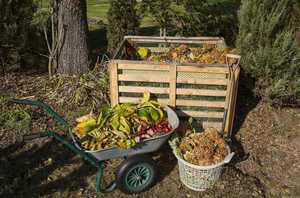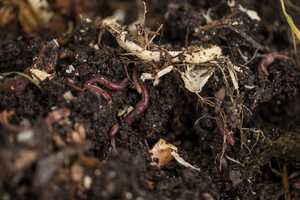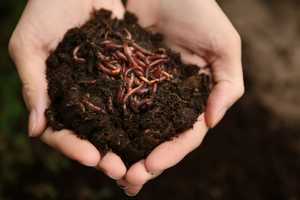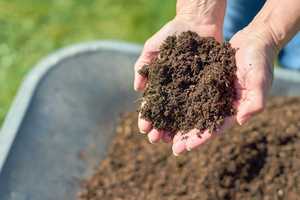Celebrating Compost Week by Woody Morley
To celebrate Compost Week 2021, Sitting Spiritually' Gardener Woody Morley guides us through the joys of composting....
We’re always told that “good quality garden compost” should be added to this or put on that but have you ever stopped to really think why “garden” compost, as opposed to the stuff you buy in bags from the garden centre is so good and what makes it so special?
Monty Don in a recent Gardeners World put it perfectly – “compost’s real secret is that it gives life to soil”. It’s like a starter dough - providing a kick start for all the complex relationships that exist between life in the soil and a plant’s roots.
The most satisfying thing I find is that it’s also completely free and unlike some of gardening’s chores very easy to do. While you enjoy the splendour of a garden in mid summer, the slow but graceful decline in autumn and the rest of winter the hidden heroes of our gardens are working round the clock. Worms, bacteria, fungi, beetles, nematodes, slow worms and many other wonderful little creatures are turning what we have unceremoniously heaped into a pile into the tonic that will ensure health and radiance for years ahead.
Like most things in life balance is the key to a great compost. Ideally you want a roughly equal split between brown (dried stems, straw, cardboard) and green (grass clippings, herbaceous cuttings and kitchen waste). Too much green, especially grass clippings, and it’ll become a sludgy mess. Too brown and it’ll be dry and lifeless.
The more time you put into it the quicker you’ll be paid back with rich, dark goodness. By shredding woody stems and chopping up all green material and turning every three or four weeks you’ll greatly speed up the process. How long it takes can depend on many factors but all going well within only a few months you could have something ready to start using.
I prefer the slow more lazy approach though, where you let the compost mature over a year or two into horticultures very own fine wine. The only downside is you’ll need more space for multiple piles as your garden waste will soon pile up.
Make sure to only add uncooked kitchen waste – fruit and vegetable peelings, coffee grounds and egg shells – as otherwise you may attract vermin. It’s wise to also leave out any perennial weeds or annual weeds that have gone to seed. One year’s seed, seven years weed!
There’s even more good news too. By composting in situ you’re helping do your bit for the environment by reducing the carbon footprint associated with green waste collections and processing. It’s win, win all round!
If you want even more pointers as to how to create perfect compost I'd highly recommend Bob Flowerdew's book the aptly named "Composting".
Many thanks to Woody Morley for this article.
If you would like to contribute a guest blog, please contact Sitting Spiritually at info@sittingspiritually.co.uk
Posted on March 15th 2021




